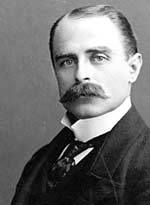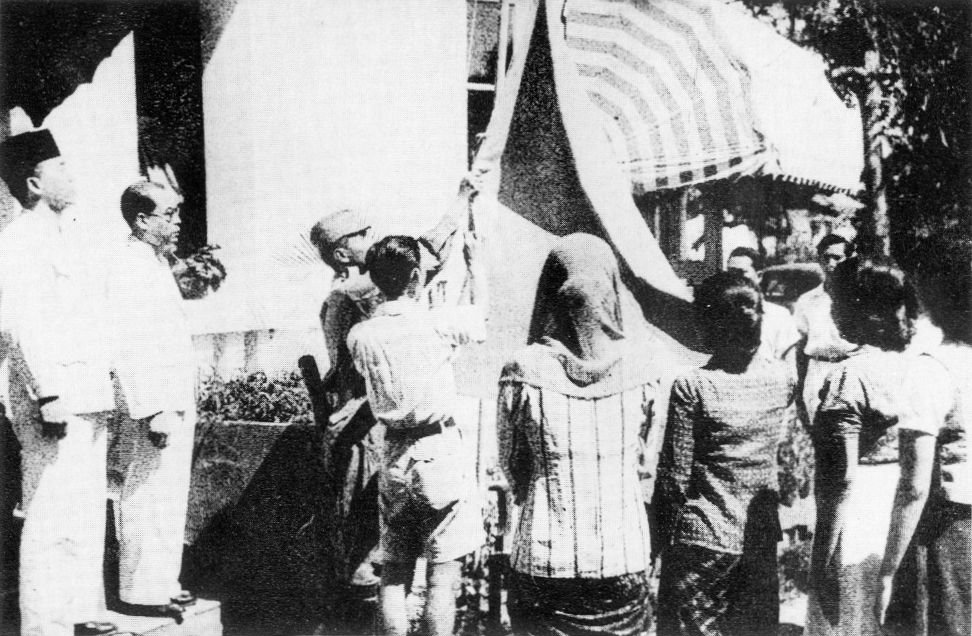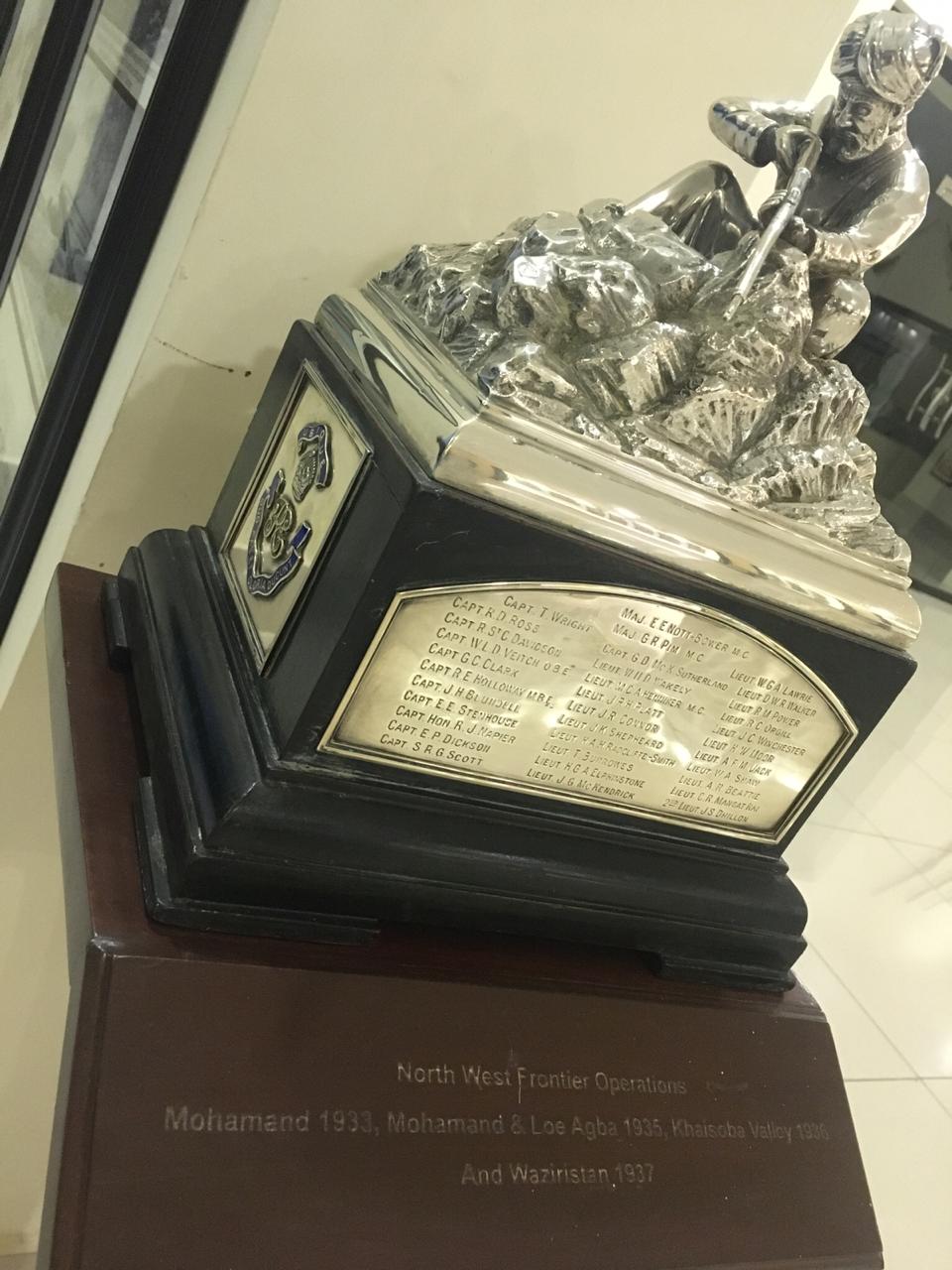|
British Indian Army
The Indian Army was the force of British Raj, British India, until Indian Independence Act 1947, national independence in 1947. Formed in 1895 by uniting the three Presidency armies, it was responsible for the defence of both British India and the princely states, which could also have their own Imperial Service Troops, armies. As stated in the ''Imperial Gazetteer of India'', the "British Government has undertaken to protect the dominions of the Native princes from invasion and even from rebellion within: its army is organized for the defence not merely of British India, but of all possessions under the suzerainty of the Emperor of India, King-Emperor." The Indian Army was a vital part of the British Empire's military forces, especially in World War I and World War II. The Indian Presidencies and provinces of British India, Presidency armies were originally under East India Company command, and comprised the Bengal Army, Madras Army, and Bombay Army. After the Indian Rebellion ... [...More Info...] [...Related Items...] OR: [Wikipedia] [Google] [Baidu] |
Union Flag
The Union Jack or Union Flag is the ''de facto'' national flag of the United Kingdom. The Union Jack was also used as the official flag of several British colonies and dominions before they adopted their own national flags. It is sometimes asserted that the term ''Union Jack'' properly refers only to naval usage, but this assertion was dismissed by the Flag Institute in 2013 after historical investigations. The origins of the earlier flag of Great Britain date from 1606. James VI and I, King James VI of Scotland had inherited the English and Irish thrones in 1603 as James I, thereby Union of the Crowns, uniting the crowns of Kingdom of England, England, Kingdom of Scotland, Scotland, and Kingdom of Ireland, Ireland in a personal union, although Scotland and England remained separate states until the Treaty of Union took effect in 1707. On 12 April 1606, a new flag to represent the regal union between these two nations was specified in a royal decree, according to which the fla ... [...More Info...] [...Related Items...] OR: [Wikipedia] [Google] [Baidu] |
British Expedition To Tibet
The British expedition to Tibet, also known as the Younghusband expedition, began in December 1903 and lasted until September 1904. The expedition was effectively a temporary invasion by British Indian Army, British Indian Armed Forces under the auspices of the Tibet Frontier Commission, whose purported mission was to establish diplomatic relations and resolve the dispute over the border between Tibet and Kingdom of Sikkim, Sikkim.Landon, P. (1905). ''The Opening of Tibet'' Doubleday, Page & Co, New York. In the nineteenth century, the British had conquered Konbaung dynasty, Burma and Sikkim, with the whole southern flank of Tibet coming under the control of the British Raj, British Indian Empire. Tibet was ruled by the 13th 13th Dalai Lama, Dalai Lama under the Ganden Phodrang government as a Himalayas, Himalayan state under the Tibet under Qing rule, protectorate (or suzerainty) of the Chinese Qing dynasty until the 1911 Revolution, after which a Tibet (1912–1951), period of ... [...More Info...] [...Related Items...] OR: [Wikipedia] [Google] [Baidu] |
Sir Claude Auchinleck
Field Marshal Sir Claude John Eyre Auchinleck ( ) (21 June 1884 – 23 March 1981), was a British Indian Army commander who saw active service during the world wars. A career soldier who spent much of his military career in India, he rose to become commander-in-chief of the Indian Army by early 1941 during the Second World War. In July 1941 he was appointed commander-in-chief of the Middle East Theatre, but after initial successes the war in North Africa turned against the British-led forces under his command and he was relieved of the post in August 1942 during the North African campaign. In June 1943, he was once again appointed Commander-in-Chief, India, where his support through the organisation of supply, maintenance and training for General William Slim's Fourteenth Army played an important role in its success. He served as commander-in-chief, India, until the Partition in 1947, when he assumed the role of supreme commander of all British forces in India and Pakistan un ... [...More Info...] [...Related Items...] OR: [Wikipedia] [Google] [Baidu] |
William Slim, 1st Viscount Slim
Field Marshal William Joseph Slim, 1st Viscount Slim (6 August 1891 – 14 December 1970), usually known as Bill Slim, was a British military commander and the 13th Governor-General of Australia. Slim saw active service in both the First and Second World Wars and was wounded in action three times. During the Second World War he led the Fourteenth Army, the so-called "forgotten army" in the Burma campaign. After the war he became the first British officer who had served in the Indian Army to be appointed Chief of the Imperial General Staff. From 1953 to 1959 he was Governor-General of Australia. In the early 1930s, Slim also wrote novels, short stories, and other publications under the pen name Anthony Mills. Early years William Slim was born at 72 Belmont Road, St Andrews, Bristol, the son of John Slim by his marriage to Charlotte Tucker, and was baptised there at St Bonaventure's Roman Catholic church, Bishopston. He was brought up first in Bristol, attending St Bonaventure ... [...More Info...] [...Related Items...] OR: [Wikipedia] [Google] [Baidu] |
William Birdwood, 1st Baron Birdwood
Field Marshal William Riddell Birdwood, 1st Baron Birdwood (13 September 1865 – 17 May 1951), was a British Army officer. He saw active service in the Second Boer War on the staff of Lord Kitchener. He saw action again in the First World War as commander of the Australian and New Zealand Army Corps during the Gallipoli Campaign in 1915, leading the landings on the peninsula and then the evacuation later in the year, before becoming commander-in-chief of the Fifth Army on the Western Front during the closing stages of the war. He went on to be general officer commanding the Northern Army in India in 1920 and Commander-in-Chief, India, in 1925. Early life William Riddell Birdwood was born on 13 September 1865 in Kirkee, India. His father, Herbert Mills Birdwood, born in Bombay and educated in the UK, had returned to India in 1859 after passing the Indian Civil Service examination. In 1861, Herbert Birdwood married Edith Marion Sidonie, the eldest daughter of Surgeon-Major ... [...More Info...] [...Related Items...] OR: [Wikipedia] [Google] [Baidu] |
Herbert Kitchener, 1st Earl Kitchener
Field Marshal Horatio Herbert Kitchener, 1st Earl Kitchener (; 24 June 1850 – 5 June 1916) was a British Army officer and colonial administrator. Kitchener came to prominence for his imperial campaigns, his involvement in the Second Boer War, and his central role in the early part of the First World War. Kitchener was credited in 1898 for having won the Battle of Omdurman and securing control of the Sudan, for which he was made Baron Kitchener of Khartoum. As Chief of Staff (1900–1902) in the Second Boer WarAnon."Kitchener of Khartoum, Viscount" in ''Debrett's peerage, baronetage, knightage, and companionage'', London: Dean & Son, 1903, p. 483-484. he played a key role in Lord Roberts' conquest of the Boer Republics, then succeeded Roberts as commander-in-chief – by which time Boer forces had taken to guerrilla fighting and British forces imprisoned Boer and African civilians in concentration camps. His term as commander-in-chief (1902–1909) of the Army in India ... [...More Info...] [...Related Items...] OR: [Wikipedia] [Google] [Baidu] |
Frederick Roberts, 1st Earl Roberts
Field marshal (United Kingdom), Field Marshal Frederick Sleigh Roberts, 1st Earl Roberts (30 September 1832 – 14 November 1914), was a British Victorian era general who became one of the most successful British military commanders of his time. Born in India to an Anglo-Irish family, Roberts joined the East India Company, East India Company Army and served as a young officer in the Indian rebellion of 1857, Indian Rebellion during which he was awarded the Victoria Cross for gallantry. He was then transferred to the British Army and fought in the 1868 Expedition to Abyssinia, Expedition to Abyssinia and the Second Anglo-Afghan War, in which his exploits earned him widespread fame. Roberts would go on to serve as the Commander-in-Chief, India, before leading British forces for a year during the Second Boer War. He also became the last Commander-in-Chief of the Forces before the post was abolished in 1904. A man of small stature, Roberts was affectionately known to his troops and t ... [...More Info...] [...Related Items...] OR: [Wikipedia] [Google] [Baidu] |
Indonesian National Revolution
The Indonesian National Revolution (), also known as the Indonesian War of Independence (, ), was an armed conflict and diplomatic struggle between the Republic of Indonesia and the Dutch Empire and an internal social revolution during Aftermath of WWII, postwar and Dutch East Indies#World War II and independence, postcolonial Indonesia. It took place between Indonesian Declaration of Independence, Indonesia's declaration of independence in 1945 and the Netherlands' Dutch–Indonesian Round Table Conference, transfer of sovereignty over the Dutch East Indies to the Republic of the United States of Indonesia at the end of 1949. The four-year struggle involved sporadic but bloody armed conflict, internal Indonesian political and communal upheavals, and two major international diplomatic interventions. Dutch military forces (and, for a while, the forces of the World War II Allies, World War II allies) were able to control the major towns, cities and industrial assets in Repu ... [...More Info...] [...Related Items...] OR: [Wikipedia] [Google] [Baidu] |
North-West Frontier Province
The North-West Frontier Province (NWFP; ) was a province of British India from 1901 to 1947, of the Dominion of Pakistan from 1947 to 1955, and of the Pakistan, Islamic Republic of Pakistan from 1970 to 2010. It was established on 9 November 1901 from the north-western districts of the Punjab Province (British India), British Punjab, during the British Raj. Following the 1947 North-West Frontier Province referendum, referendum in 1947 to join either Pakistan or India, the province voted hugely in favour of joining Dominion of Pakistan, Pakistan and it acceded accordingly on 14 August 1947. It was dissolved to form a unified province of West Pakistan in 1955 upon promulgation of One Unit Scheme and was reestablished in Legal Framework Order, 1970, 1970. It was known by this name until 19 April 2010, when it was dissolved and redesignated as the province of Khyber Pakhtunkhwa following the enactment of the Eighteenth Amendment to the Constitution of Pakistan, Eighteenth Amendmen ... [...More Info...] [...Related Items...] OR: [Wikipedia] [Google] [Baidu] |
Second World War
World War II or the Second World War (1 September 1939 – 2 September 1945) was a World war, global conflict between two coalitions: the Allies of World War II, Allies and the Axis powers. World War II by country, Nearly all of the world's countries participated, with many nations mobilising all resources in pursuit of total war. Tanks in World War II, Tanks and Air warfare of World War II, aircraft played major roles, enabling the strategic bombing of cities and delivery of the Atomic bombings of Hiroshima and Nagasaki, first and only nuclear weapons ever used in war. World War II is the List of wars by death toll, deadliest conflict in history, causing World War II casualties, the death of 70 to 85 million people, more than half of whom were civilians. Millions died in genocides, including the Holocaust, and by massacres, starvation, and disease. After the Allied victory, Allied-occupied Germany, Germany, Allied-occupied Austria, Austria, Occupation of Japan, Japan, a ... [...More Info...] [...Related Items...] OR: [Wikipedia] [Google] [Baidu] |
Waziristan Campaign (1936–1939)
The Waziristan campaign 1936–1939 comprised a number of operations conducted in Waziristan by the British Indian Army against the fiercely independent tribesmen that inhabited this region. These operations were conducted in 1936–1939, when operations were undertaken against followers of the Pashtun nationalist Mirzali Khan, also known by the British as the "Faqir of Ipi", a religious and political agitator who was spreading anti-British sentiment in the region and undermining the prestige of the Indian government in Waziristan at the time. Background In 1919–1920, the British had fought a Waziristan campaign (1919–1920), campaign against the Wazir tribes. Minor skirmishes had continued into 1921, but after the establishment of a permanent garrison at Razmak there had been a period of relative peace in the region. Throughout 1921–1924 the British undertook a road construction effort in the region that led to further conflict during the Waziristan campaign (1921–1924), ... [...More Info...] [...Related Items...] OR: [Wikipedia] [Google] [Baidu] |
Waziristan Campaign (1919–1920)
The Waziristan campaign 1919–1920 was a military campaign conducted in Waziristan by British Army, British and British Indian Army, Indian forces against the fiercely independent tribesmen that inhabited this region. These operations were conducted in 1919–1920, following the unrest that arose in the aftermath of the Third Anglo-Afghan War. Background The prelude to the 1919–1920 campaign was an incursion by the Mahsud, Mahsud Tribe in the summer of 1917 while British forces were otherwise engaged fighting in the First World War. The British Forces eventually restored calm, however, in 1919 the Waziris took advantage of unrest in British India following the Third Anglo-Afghan War to launch more raids against British garrisons. It has been asserted that one of the reasons for these raids was that a rumour had been spread amongst the Wazirs and the Mahsuds, that Britain was going to give control of Waziristan to Afghanistan as part of the peace settlement following the Thir ... [...More Info...] [...Related Items...] OR: [Wikipedia] [Google] [Baidu] |











